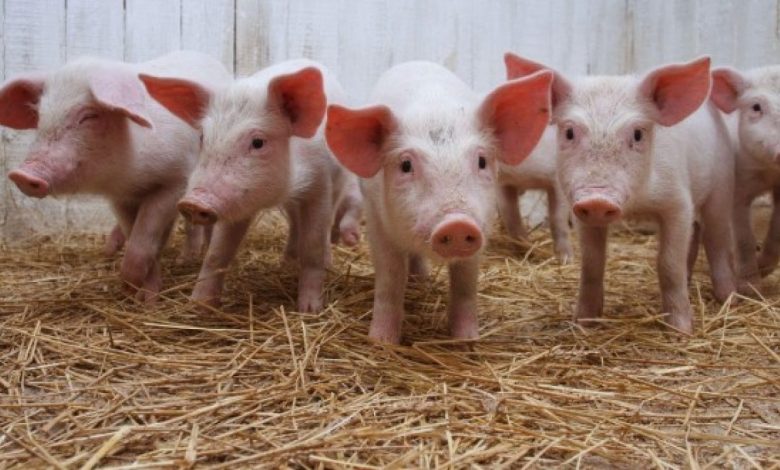
Atwijukire makes a killing from rearing pigs
In 2009, Richard Atwijukire’s father moved to Kampala and settled in Banda, Nakawa division near Kyambogo university where he started a restaurant targeting mainly university students.
Nine years later in 2018, Atwijukire joined his dad in Kampala and apart from studying, he started helping him out with chores at the restaurant until he got the idea of starting a piggery, taking advantage of left-over food at the restaurant.
This is the story of a 25-year-old starting small and as they say, the rest is history.
“As customers asked for food, many of it was wasted and left on their plates. Dad used to give it out free of charge to people who would come requesting for it whereas others offer money so as to take the left overs. However, I realized I could make good use of the left over food,” Atwijukire says of his beginnings.
He says that back in the village, left over food would be given to pigs and when he realized a lot of food was wasted, he thought outside the box.
According to him, at home (in Kampala) he convinced his dad to assist him in hiring a piece of land that would house the piggery project as he started out with three mature pigs.
“I rented a 30 x 30 feet piece of land at shs200,000 per year as ground rent to accommodate the pigs. As the years went by, the number increased from three at the start to 25 pigs,” he says.
“When you are starting, it’s not a matter of starting with a big number. You can start with even one piglet. Build your shelter like one room. Then you feed it. In that feeding, it is an added advantage having one. You can feed it well and it grows well but when you start with many of them without much food, they won’t grow the way you want them to.”
Challenges
Atwijukire says just like any business, he has faced a number of challenges with his piggery project.
He explains that whereas he gets feeds from left over food at his father’s restaurant, in holidays when the university is not operational, he struggles to feed the animals.
“Our restaurant works during the school time. Sometimes when we are on holidays, food is not enough. So, we have to buy feeds and this proves expensive,” he says.
The 25-year-old says at one time the animals were attacked by a disease that claimed a number of them but he was able to recover.
According to Atwijukire, in the start, thieves disturbed his farm as they stole some of his animals but the community found a lasting solution to this.
“To beat this, the homesteads surrounding the farm were all interested into getting involved in rearing pigs. This means that should a stranger enter the farm and carry out suspicious activities pointing to thievery, any of the surrounding members has to find out what is going on at the farm. That’s why they don’t steal from here. We all take responsibility,” he says.
Cashing in
Atwijukire says he doesn’t regret starting a piggery project as he has earned a lot from it.
“When all is well, a mature animal costs Shs700, 000 upwards whereas a month-old piglet, at my farm costs Shs 100, 000. With this project, I can get money quickly, within a short time,” he says.
“A project like this one is like an investment. I have a job. After getting a salary, sometimes I buy an animal or animals and put them here. That’s an investment. In case I want some money even when the job is no more, I can get the money from here and use it to do other things.”
Balancing farm and work
Atwijukire says even though he employs a person to take care of the animals, he rarely spends a day away from the farm.
“I go to work at 6am. I come back around 5pm or 6pm but I have to make sure I visit the farm. Even though it is around 8pm, I spare some minutes to pass by the farm to check what is going on,” he says.
Advice
The 25-year-old advises young people to think of projects like piggery.
“When you are looking for a job, it takes time but you can look for it for a year or even years and still not get it. However, you can use that time and some little resources to start such a project a project like pig rearing. Even if you get a job, you can continue rearing pigs as another source of income,” he says.
Atwijukire says he is looking at selling some of the animals to raise money, top up his savings and then buy cattle in his home district in Western Uganda.



